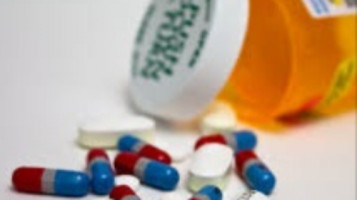
The anti-diabetic drug phenformin may prompt stronger cancer-fighting activities than its sister compound metformin, a finding that could have major implications for current and future clinical trials investigating both agents for their anti-cancer potential, according to researchers at Massachusetts General Hospital (MGH).
In a review article in Trends in Cancer, the team presented evidence that immunotherapies such as immune checkpoint inhibitors (which enable T cells to attack and kill cancer cells) in combination with phenformin may also be a promising way to repurpose this diabetic drug as an anti-cancer agent.
Metformin was approved by the U.S. Food and Drug Administration in 1995 and has since become the most prescribed drug for diabetes in the United States.
Phenformin was first prescribed for type 2 diabetes in the 1950s but was withdrawn from use in the late 1970s due to the risk of lactic acidosis, a potentially dangerous condition caused by excess buildup of lactic acid in the blood, which can disrupt the body's pH balance.
Metformin and phenformin are members of a class of anti-diabetic drugs known as biguanides that originated from compounds in the French lilac, a plant known for its hypoglycemic properties since medieval times.
Preclinical studies over the past ten years by MGH and others have demonstrated that both forms of biguanides possess anti-tumour activity, spurring efforts to repurpose them for cancer prevention and treatment.
"While the outcomes of various clinical studies of metformin in cancer patients have been underwhelming, research from our laboratory and others suggests that phenformin may have greater potential, particularly in combination with immunotherapies," says Bin Zheng, PhD, the study's senior author and an investigator in the Cutaneous Biology Research Center at MGH.
"We have found, for example, that phenformin, but not metformin, enhances the efficacy of BRAF inhibitors in suppressing the proliferation of BRAF-mutant melanoma cells and BRAF-driven tumour growth in animal models."
BRAF mutations are changes in cellular DNA that are found in about half of all melanomas.
After years of preclinical research, MGH has partnered with Memorial Sloan Kettering Cancer Center to launch a phase 1 clinical trial evaluating phenformin with a combination of inhibitors (dabrafenib/trametinib) in patients with BRAF-mutated melanoma.
"If the safety of phenformin is confirmed in this trial, combinations of phenformin with targeted immunotherapies such as anti-PD-1 (programmed cell death 1 antibodies, which stimulate anti-tumour immunity) could be explored for patients with various types of solid tumours," says Zheng.
Another retrospective study has shown improved clinical outcomes in patients with non-small-cell lung cancer who received immune checkpoint inhibitors in combination with metformin, compared to the inhibitors alone.
With respect to mechanisms of action governing the anti-tumour activity of biguanides, the MGH team noted that gut microbiota (the trillions of cells, including bacteria, viruses and fungi, that reside in the gut and are vital to normal health) could play a key role.
They suggested that biguanides may affect the anti-tumour efficacy of therapies by modulating gut microbiota, in the same way metformin may lower blood glucose levels in diabetes patients in part by interacting with the microbiome.
"Scientists have shown a tremendous interest in biguanides as potential anti-cancer agents, and we believe our work will help the field to focus on the most promising ways forward, particularly phenformin," says Zheng.
"Phenformin demonstrates more metabolic and pharmacologic potential than metformin, and its toxicity, which might be a problem for certain people with diabetes, is actually lower than some current chemotherapies."
Source: Massachusetts General Hospital
The World Cancer Declaration recognises that to make major reductions in premature deaths, innovative education and training opportunities for healthcare workers in all disciplines of cancer control need to improve significantly.
ecancer plays a critical part in improving access to education for medical professionals.
Every day we help doctors, nurses, patients and their advocates to further their knowledge and improve the quality of care. Please make a donation to support our ongoing work.
Thank you for your support.